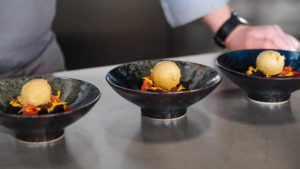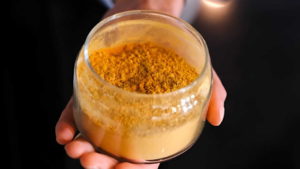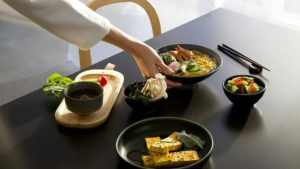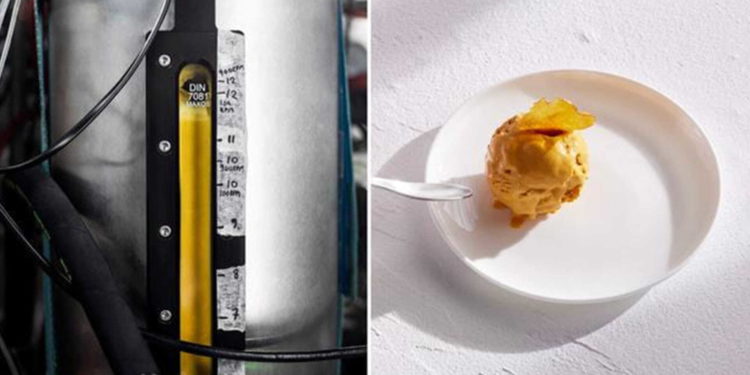Finland is setting the standard for sustainable food production with Solein, a protein made by using microbes and air. This is one of the incredible steps taken on the way to sustainable innovations in the food sector. Into the Future of Food, the Opening of the First Factory in the World to Produce Food out of thin Air is all set to step into bigger markets.
It is the first plant in the world devoted to air-based food cultivation. This manufacturing plant cultivates microscopic organisms using electricity and atmospheric gasses to manufacture this unique protein. This creative method provides a sustainable alternative for food production while minimizing the negative effects on the environment. The facility is a big step forward in the search for creative and sustainable methods to feed the world.
By creating a ground-breaking technique to produce protein with only air and microbes, Finland has introduced an amazing way to make a useful edible.
This method is not only a big step toward a more sustainable future but also a worthwhile preparation for the world food crisis.
Solein: The Revolutionary Protein Created from Microbes and Air

Solein is a special kind of protein produced by Solar Foods. Microbes, which are microscopic living organisms, are used to make Solein instead of more conventional substances like sugar. The technique of growing and drying these bacteria is comparable to that of creating yeast.
The fact that Solein doesn’t eat sugar is interesting. Rather, it survives on atmospheric gases such as carbon dioxide and hydrogen. Although these gasses are all around us, we don’t typically consider them to be food for protein synthesis. Furthermore, it can develop without the use of conventional farming techniques or inputs like soil, water, or sunlight. It’s an entirely new method of manufacturing protein independent of the weather or agriculture.
According to Solar Foods, Solein is a blend of modern technology and age-old natural processes. Basically, it is a very creative and one of its kind method of producing protein out of items that are often found.
Why does this matter? Indeed, growing livestock for food such as hens and cows produces a significant amount of greenhouse gases that fuel global warming. This sustainable protein Solein has the potential to lessen the need for animal farming and the damaging emissions that come with it by producing protein from gasses rather than animals.
Here a question also arises, What makes Solein Unique?
This protein stands out due to its exceptional sustainability. Compared to conventional protein sources like plants or animals; it uses a lot less land and water and releases a lot less carbon dioxide during production. It doesn’t damage the ecosystem or depend on animals, and it can be generated everywhere, even in hostile climates like the Arctic or deserts.
Nutritional Analysis of Solein

The ingredients of the incredibly nourishing protein are as follows:
- Protein: 65–70%
- Fat: 5–8%
- Dietary Fiber: 10%–15%
- Mineral nutrients: 3–5%
In comparison with Other Proteins
Since the nutrient profile of this protein resembles that of dried soy or algae, it is a dependable and well-known source of vital nutrients.
Important Elements
- Iron: Vital for blood and energy levels in good condition.
- B vitamins: Essential for the synthesis of energy and general well-being.
What is sustainable food production?

This is important to understand. The practice of growing, gathering, processing, and distributing food in a way that reduces its negative effects on the environment, protects natural resources, nurtures social justice, and assures its economic viability for present and future generations is known as sustainable food production.
The food industry is one of the biggest productions that carry out important stuff with several processes, plants, setups, and whatnot.
Now Activities that reduce pollution and lessen the use of dangerous chemicals while also preserving and improving biodiversity, soil health, water quality, and ecosystems must be Eco-friendly so that it puts less burden on the planet and its resources.
Talking about Solein, The small environmental impact of this technology is among its greatest benefits. Large amounts of land, water, and resources are needed for traditional agriculture, which increases greenhouse gas emissions, deforestation, and water scarcity. On the other hand, this new approach is a very sustainable substitute because it exclusively employs air, water, and renewable energy sources.
Compared to traditional protein production methods, the technology of innovative foods dramatically minimizes greenhouse gas emissions by using renewable electricity. This is in line with international initiatives to mitigate climate change and lower carbon emissions.
Generating protein using electricity and air is not only a novel idea, but it is also crucial to lessen our reliance on conventional agriculture and the negative effects it has on the environment.
Furthermore, the production of Solein from electricity and air by Finland is a significant step in the direction of a more healthy and sustainable food system. This technology has the potential to revolutionize the understanding of food production and consumption as it develops and gains traction.
The objective of this innovative foods concept or sustainable food is to establish a sustainable food system that can meet the needs of a growing population without compromising the health of our planet. This technology represents a substantial advancement in that regard.
Finland is a leader in the production of protein from electricity and air, signifying the potential for creative solutions to the world’s food and environmental problems. Such innovative technologies will be vital in reshaping the food sector and guaranteeing food security for future generations as we head toward a more sustainable future.
Solein is one of the many steps that will shape the future and change the game of sustainable food.













